While we have seen decreasing rates of alcohol and tobacco use during pregnancy over the last few decades, the use of cannabis during pregnancy is on the rise. Qualitative studies indicate that pregnant women report using cannabis to manage a range of psychological symptoms, including insomnia, anxiety, and depression. Studies carried out prior to the legalization of medical and recreational marijuana (in some states) have demonstrated that pregnant women with active depressive symptoms and/or anxiety are more likely to use substances. A cross-sectional study from Californaia examines the associations between prenatal cannabis use and the use of prescribed psychotropic medications among pregnant patients with depression or anxiety in a large, integrated healthcare system (between 2012 and 2018).
In this study, data from the Kaiser Permanente Northern California (KPNC) health care system was used to identify pregnant individuals with a depressive or anxiety disorder defined by International Classification of Diseases codes. Patients were screened for prenatal substance use using a self-reported questionnaire and urine toxicology tests as part of routine prenatal care. In addition, any dispensation of antidepressants, benzodiazepines, and/or sedative-hypnotics during pregnancy was assessed. Severity of depressive symptoms was measured using the Patient Health Questionnaire (PHQ-9).
This cross-sectional study examined the associations between prenatal cannabis use and the use of prescribed psychotropic medication use among pregnant individuals with a diagnosis of an anxiety disorder or depression. The analysis included 35,047 pregnancies (32,278 individuals; 17.6% under 25 years of age, 48.1% non-Hispanic White). In this population, 12.8% of the women screened positive for cannabis use.
After adjusting for patient age, income, race/ethnicity, and depression symptom severity, the researchers found that 12.6% of the patients who screened positive for prenatal cannabis use were more likely to screen positive for prenatal benzodiazepine use (adjusted odds ratios [aOR] = 1.40) and for sedative-hypnotic use (aOR = 1.28). However, women were not more likely to use antidepressants (aOR = 1.05). The odds of prenatal benzodiazepine and sedative-hypnotic use in combination with prenatal cannabis use were higher among pregnancies with severe depression symptom severity (31.8% of the sample).
Other Findings of Concern
While this study focuses primarily on the association between cannabis use and the use of prescribed psychotropic medications, one of the most concerning findings is that women with a diagnosis of depression and/or anxiety disorder (regardless of cannabis use) were not more likely to use an antidepressants but were more likely to use benzodiazepines and/or sedative-hypnotic medications. Even when they looked only at women with greater depression severity (31.8% of the women had a PHQ-9 of 10 or greater) , women were more likely to use benzodiazepines (aOR 1.37) and sedative-hypnotic medications (aOR 1.45) but not antidepressants.
Given this type of cross-sectional study, it is not possible to fully understand how women with depression and/or anxiety make decisions regarding medication use during pregnancy; however, the current study raises some important questions.
While screening for perinatal mood and anxiety disorders was routinely completed during pregnancy, did these women receive appropriate counseling regarding the use of medications during pregnancy and the risks associated with untreated psychiatric illness in the mother? Were they able to access mental health services?
Are women with depression and/or anxiety choosing to avoid antidepressants and to use instead benzodiazepines and sedative-hypnotics (or cannabis) because these medications can be used as needed instead of on a daily basis?
If rates of cannabis use is higher among depressed women, does this indicate that women may believe that cannabis is safer than antidepressants? Is it easier to get cannabis than antidepressants? Does cannabis cause or worsen depression in this population? Is cannabis use a symptom of depression (akin to poor self-care)?
Future studies are necessary to better understand the decision-making process; however, this study raises many concerns. In this subset of women with depression and/or anxiety, particularly those with more severe symptoms, what we have is a substantial proportion of pregnancies with multiple exposures which have been associated with worse outcomes for both the mother and her child. About a third of this population reported severe depressive symptoms (Exposure #1). This group of women were more likely to use psychotropic medications — benzodiazepines and/or sedative-hypnotics — that did not result in resolution of depressive symptoms or anxiety (Exposure #2), although it is possible that these medications had some impact on the severity of symptoms. Women with severe depressive symptoms were more likely to use cannabis (Exposure #3). And finally, depression during pregnancy is a robust predictor of postpartum depression (Exposure #4).
Ruta Nonacs, MD PhD
Hirschtritt ME, Avalos LA, Sarovar V, Ridout KK, Goler NC, Ansley DR, Satre DD, Young-Wolff KC. Association Between Prenatal Cannabis Use and Psychotropic Medication Use in Pregnant Patients With Depression and Anxiety. J Addict Med. 2022 Jan 11.

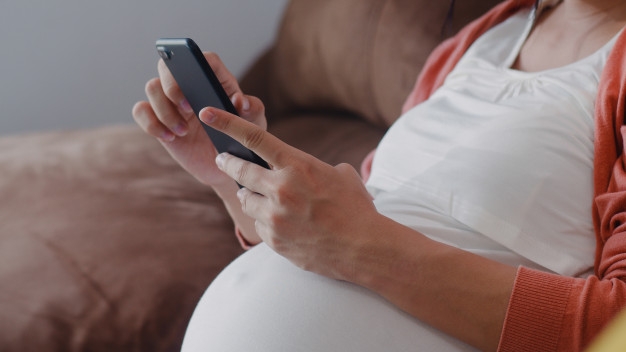
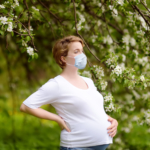
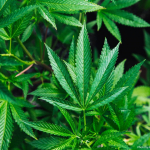
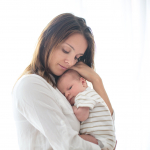
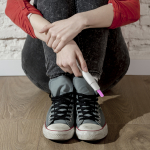


Leave A Comment